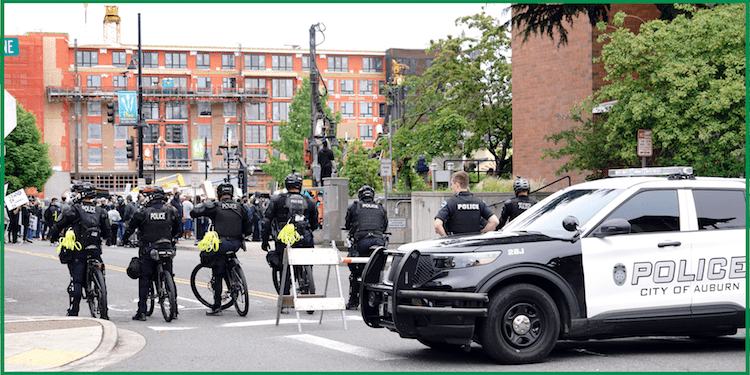Policing through community engagement should be a welcoming idea in tackling lawlessness and crimes.
As the world heals and recovers from the COVID-19 pandemic, the influx of crime-related activities increases dramatically—the outcome of the pandemic has negatively affected communities worldwide.
According to reports and statistics, homelessness has tripled due to business shutdowns and job losses during the pandemic.
Mental illness is also rising due to the inability to move around, get medical attention, and seek self-care during the Covid-19 season.
With the increase in criminal activities within communities, law enforcement, and public safety agencies have much to deal with if they are also responsible for responding to homelessness and mental illness.
The responsibilities of policing non-violent or non-criminal-related activities could be shared and handled by local responders such as health professionals, outreach teams, case managers, etc.,
A collaborative partnership between law enforcement agencies and local responders should be encouraged and practiced for meaningful community policing.
Law enforcement agencies can focus mainly on violent and criminal activities, while local responders engage in non-violent emergencies.
What are policing and community engagement?
Policing is the regulation and maintenance of public order, law, safety, health, morals, etc., of residents and citizens of a geographic location.
Community engagement is said to involve and participate in an organization for the community’s welfare.
Community engagement is working cooperatively with groups of individuals connected by geographic location, similar situations, or particular interests to address issues affecting the community’s well-being.
Community engagement is a perfect go-to idea when seeking a solution to policing a community.
In general, engagement is neither driven by a model nor a blueprint but focused on strategies, approaches, and various guiding principles.
What works for a particular community may not work for the other districts.
Is policing through community engagement necessary?
The advantages of community engagement include people working together to achieve a common societal objective and keeping abreast of a community goal.
By so doing, desired community safety and development are attainable.
Community residents’ engagement helps eliminate fears and negative concerns regarding public safety agents, i.e., police.
At the same time, adding a sense of value, closeness, and attention to the things to come.
Community-Police engagement will bridge the gap between law enforcement agencies and residents.
To be candid, public safety agencies can not guarantee to know every detail and piece of information regarding activities ongoing in a community.
Having a neighborhood watch system is not only helpful, but it can also help save time and resources.
The reality is that public safety agencies, including the police, are limited with resources without the cooperation of the locals.
Within a community, public safety agencies such as the police forces cannot be present everywhere, regardless of what sort of training they might have undergone.
Resident better knows the nooks and crannies of a neighborhood than an outsider.
Policing through community engagement should be a welcoming idea.
The community members can input comments, concerns, or ideas and provide necessary assistance, such as tips and information regarding ongoing criminal activities at a secluded location.
The sort of input by residents can go a long way to keeping the environment safer while making the process easier.
Why should a community/residents participate in policing?
Many communities tend not to believe that police actions reflect community benefits and incorporate the principles of procedural justice and legitimacy.
Police agencies worldwide, especially in the United States, were accused of controversial uses of force against specific communities.
Many communities have questioned the legitimacy of the police force.
The Black Lives Matter or BLM movement gained momentum during the Covid-19 pandemic.
The police force in the United States was nationally and internationally protested against in response to the use of unnecessary force in black communities, leading to the death of many black people.
A collaborative effort must be made to build better relationships between law enforcement agencies and residents to produce influential community policing.
How to participate in Community Policing?
Anonymous information sharing with law enforcement and public safety agencies could be the best form of community engagement.
Any participation that will enhance and improve community safety is considered community engagement. And Due to the secrecy of the person giving out the information would eliminate the fear of retaliation.
Anonymity is encouraged when giving out information regarding criminal activities, except when compensation or rewards are involved.
Join a local organization that caters to the well-being of the community. Organizations such as community outreach, vigilante, medical volunteer, etc.,
Do you enjoy this reading? Kindly share with family, friends, and colleagues. Thanks 🙂



